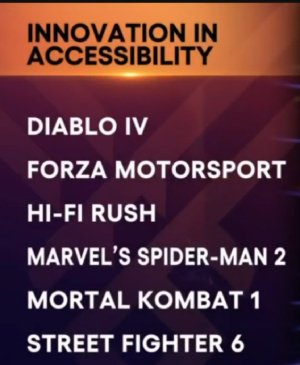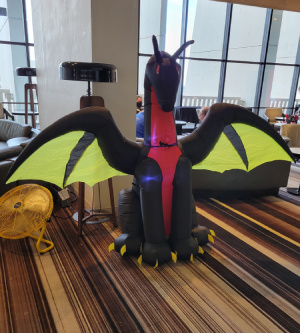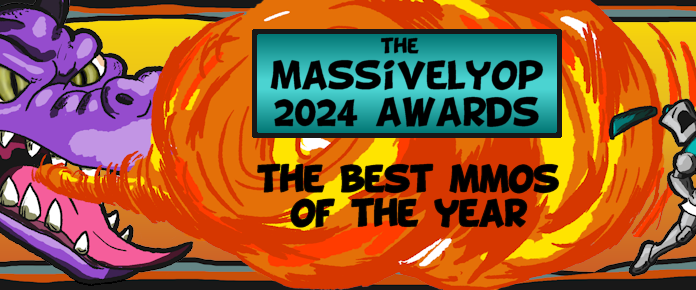
It is not uncommon to spend the beginning of a year reflecting back on the old while looking forward to the new. That’s something I have been doing since the dawn of 2024. There are changes I want to see in myself – and changes I want to see in the world. In light of changes, I’ve even adopted a word for this year, a word to help guide my endeavors: progress. But this word is about more than the final achievement; it’s about making progress.
You see, I have goals. I have things I want to get done. And honestly, I get pretty perturbed at myself when I don’t meet those goals. Even when I know the road will be long, I am still quite disheartened when things seem to crawl at too slow a pace. In this, I forget to see the progress that is actually made even before a goal is reached. This goes not only for me personally but for external areas that are a part of my life. So I am also focusing on celebrating the act of progress as well – and I am applying that to those other areas.
One area that I’ve focused my reflections on is awareness, accessibility, and inclusion in gaming. I am happy to share that through my time collecting stories for Massively Uplifting, interviewing and interacting with developers remotely and live at conventions, and generally hobnobbing with fellow gamers, I feel that there truly is an upswing in these areas in the gaming field. Has the goal for where we need to be been met? Heavens, no. But is there progress? Yes! Instead of the industry hiding the issue away in some dark closet, it’s being discussed more openly, and I see it see it represented more in the games themselves. Even Verizon has stepped into the ring. And I see it finding a broader stage thanks to Dragon Con and The Game Awards. This is a trend I truly hope to see continue to progress!
 Taking steps
Taking steps
Throughout 2023, I found instances where the topic of accessibility was brought up with concrete steps taken for improvement. Here in our Massively Uplifting roundups, I was able to highlight where the studios Digital Extremes and Wargaming each raised money for improved inclusion and accessibility in gaming, how Blizzard’s implemented accessibility tools helped a blind gamer, and how the even company Verizon joined the conversation of gaming accessibility and the benefits of playing for the disabled. I was a bit surprised but happy to find inclusion was even highlighted at the start of last Game Awards, where the first award was actually for Innovation in Accessibility (won by Forza Motorsport).
These items show the results of progress and definitely demonstrate more awareness. However, results don’t just happen in a vacuum. The path that leads to results are those steps along the way, including important conversations about the issues. That’s where venues like Dragon Con come in.
Dragon Con shines a light on the topic
While Dragon Con isn’t really a place for big MMO announcements and such (I do miss those days in the past!), that doesn’t mean that the video games track is a barren land of crickets devoid of things for us MMO gamers. In fact, it carries on some very important conversations that affect the genre. Besides fan panels, there are a number of important topics and discussions, brought up by both those within the games industry themselves as well as content creators and players. These panels are not the big draws that major stars of various shows are, but the fact that there is still an MMO presence is heartening – I appreciate that Dragon Con provides such a high-profile venue for inclusive ideas.
 Two of the panels I attended at Dragon Con this past year really highlighted the issues of awareness, accessibility, and inclusion. The first was called Neurodiversity and Accessibility in the Gaming Community. This was a Q&A with Catieosaurus, a full-time content creator. Her focus was on ADHD, mental health, and gaming. While her speciality wasn’t specifically on MMOs (many examples were related to Dungeons & Dragons and TTRPGs), her topics were relatable for our corner of gaming too. While championing for the issues, she shared personal experiences, including how gaming allows neurodivergent to practice social skills.
Two of the panels I attended at Dragon Con this past year really highlighted the issues of awareness, accessibility, and inclusion. The first was called Neurodiversity and Accessibility in the Gaming Community. This was a Q&A with Catieosaurus, a full-time content creator. Her focus was on ADHD, mental health, and gaming. While her speciality wasn’t specifically on MMOs (many examples were related to Dungeons & Dragons and TTRPGs), her topics were relatable for our corner of gaming too. While championing for the issues, she shared personal experiences, including how gaming allows neurodivergent to practice social skills.
After that was Diversity in Video Games — Why Representation Still Matters. This panel included Alison Carter, a developer, Rob Roberts, the co-creator of Orange Lounge radio, and Karen Williams, a developer. The group noted that while many companies are making strides in this arena, there’s a long journey still ahead. Representation in games isn’t something that gets finished and set aside, at least not for the foreseeable future. And it can’t be just a token effort. Instead, we need to reach the point where diversity and accessibility are organic and fundamental to games, not afterthoughts. As Carter put it, these ideas “should be implemented at the front end, have it at the beginning of game design – it’s not just something you can tack on at the end.”
Carter also noted that accessibility is still an ongoing battle, with many still thinking such measures are necessary for only a small demographic (sometimes small enough that it can be easily ignored). However, the panelists emphasized that need to reinforce that everyone can make use of accessibility options, not just the disabled. “People don’t understand that everyone can use accessibility options,” Carter said. “It’s not just for someone with a physical handicap or a disability. It is for everyone in preferences.” Consider the example of gaming on a large screen TV: Why can’t there be more options to change font or size, or use text to speech or speech to text? Even people without vision impairment can use that!
As for strides the industry has made, the discussion highlighted how 10 years ago, a game like Baldur’s Gate 3 where a main character represents a minority group would’ve been far less common than it is today. In such games, players can represent themselves better how they want, from looks to voice, and now, it’s being celebrated, rather than eyed as an anomaly.
 One panelist’s story at Dragon Con suggested progress continues – and is still being hampered. According to the panelist, an executive for one title apparently insisted a character not be in a fighting game because she had a prosthetic leg – because that just wasn’t sexy. On the contrary, to me a badass wounded veteran fighting powerfully is so totally tantalizing! And it’s just not an isolated case where big suits derail some changes and slow down progress, but the panelists shared hope on the horizon with the winds of change: They argued that they can see changes from the agencies going to bat for employees themselves to embracing more inclusion and diversity in the games.
One panelist’s story at Dragon Con suggested progress continues – and is still being hampered. According to the panelist, an executive for one title apparently insisted a character not be in a fighting game because she had a prosthetic leg – because that just wasn’t sexy. On the contrary, to me a badass wounded veteran fighting powerfully is so totally tantalizing! And it’s just not an isolated case where big suits derail some changes and slow down progress, but the panelists shared hope on the horizon with the winds of change: They argued that they can see changes from the agencies going to bat for employees themselves to embracing more inclusion and diversity in the games.
A chunk of this change is coming from the devs who work in the trenches, knowing their game and knowing the audience better than the suits. By far my most favorite anecdote to come out of this past Dragon Con is the story of when a certain game’s execs wanted to add, ahem, certain protrusions to female wolf characters to make them sexier (sorry, male wolves got no requests). The devs “agreed,” stating they’d be happy to make them anatomically correct for the species. Do you know how many teats a wolf has? In the end, the she-wolves went bewbless, and the mighty wolves looked like wolves.
Lip service is just the beginning
As the Dragon Con panel emphasized, words do have power. Highlighted in this “panelogue” discussion was the idea that money is not the only way to show support for inclusion and accessibility; sharing and spreading the word can also help spark others to create change. Of course, although raising awareness is a very, very important step, just talking about it isn’t enough. Doing right by folks is about more than lip service; see the “do” right in the word. In order to make strides in improving inclusion, we need to take more than the single step. More than just a few baby steps. It needs to be an ongoing path to follow.
While the industry is certainly not where it needs to be on inclusion and diversity and accessibility, I believe it is making strides forward. That is something I applaud. But we definitely need to go farther in this journey, and I hope major venues like Dragon Con and The Game Awards continue to step up and bring exposure to the cause. To move further, perhaps next time The Game Awards won’t stick accessibility in the front slot most likely to be missed by folks tuning into the long program (and I definitely hope it drops the announcement of moving on the the real show after that award!). With word of mouth and participation, the panels at conventions like Dragon Con can grow in audience, panelists, and panels. The more the subject is heard, the more is done. And the more is done, the better it will be for everyone in the industry, whether they’re working on games or playing them, until accessibility and diversity become non-issues because they are simply par for the course. I look forward to that! Until then, I’ll be here looking for more stories to add to Massively Uplifting…
 From happy stories to good deeds within our virtual worlds and the real world around us, there’s so much good in the gaming community. That’s why Massively OP’s MJ Guthrie pens Massively Uplifting: to highlight those generous, inspiring, heart-warming, and uplifting tales that exist throughout the MMOverse. Send your suggested stories along to warmfuzzies@massivelyop.com for our next entry!
From happy stories to good deeds within our virtual worlds and the real world around us, there’s so much good in the gaming community. That’s why Massively OP’s MJ Guthrie pens Massively Uplifting: to highlight those generous, inspiring, heart-warming, and uplifting tales that exist throughout the MMOverse. Send your suggested stories along to warmfuzzies@massivelyop.com for our next entry!












